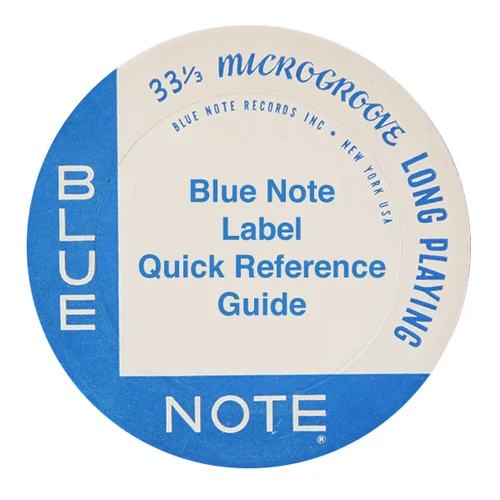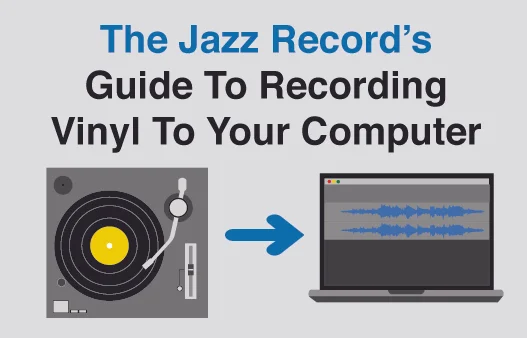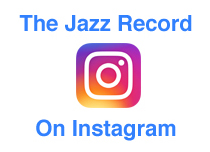Feel The Spirit: McCoy Tyner - "Enlightenment"
/McCoy Tyner • Enlightenment • 1973 • Milestone Records
Recorded July 7, 1973 at the Montreux Jazz Festival, Switzerland
The Selection:
The Tracks:
A1. Presenting The McCoy Tyner Quartet
A2. Enlightenment Suite, Part 1: Genesis
A3. Enlightenment Suite, Part 2: The Offering
B1. Enlightenment Suite, Part 3: Inner Glimpse
B2. Presence
C1. Nebula
C2. Walk Spirit, Talk Spirit (Introduction)
D1. Walk Spirit, Talk Spirit
The Players:
McCoy Tyner - Piano
Azar Lawrence - Soprano & Tenor Sax
Juni Booth - Bass
Alphonse Mouzon - Drums
The Record:
Tyner making magic In The Studio
By the time Enlightenment was released in 1973, McCoy Tyner had already been an integral part of the legendary John Coltrane Quartet, appeared on - as both a leader and sideman - a slew of classic Blue Note and Impulse! LPs and then in 1972 made the move to Milestone records where he remain for nearly a decade. With Milestone he would release a string of outstanding records, the earliest of which (including Enlightenment) would play an important part in cementing his status as one of the giants of jazz piano.
I've read that after leaving the Cotrane Quartet, Tyner supposedly struggled artistically for a few years, although I've never picked up on that from his Blue Note albums. Certainly he found a distinctive voice once he joined Milestone, with records like Sahara, Song For My Lady, Sama Layuca and Enlightenement standing out in the early '70s jazz landscape with their mix of modal, post bop and progressive jazz ideas blended together in fresh and exciting ways. Tyner and his bandmates are nearly fearless in their presentation during this period. The undeniable spiritual aspect to his recordings from this time only brings another level of complexity and emotion to the proceedings.
As for the double-LP Enlightenment, it is taken from a 1973 performance at the Montreux Jazz Festival (specifically from a show at the Casino De Montreux), and contains all the music the group performed that day without edits or omissions. Tyner's quartet is made up of the emerging tenor talent Azar Lawrence, bassist Juney Booth and drummer Alphonse Mouzon. All the musicians are in top form, although there is no doubt that Tyner is the shining star here. His piano work is inspired, with everyone clearly drawing off his seemingly boundless energy and invention. Lawrence would work with Tyner on a couple more albums, as well as make an appearance on Harry Whitaker's storied Black Renaissance album. He would also release a few albums on Prestige that I have yet to explore, but which seem to be held in high regard by certain segments of the jazz community. Booth was also busy on the early 1970s post bop scene, teaming up again with Tyner on 1975's Atlantis and playing on Larry Young's mind-blowing Lawrence of Newark. Mouzon was already well known for his work on Weather Report's self-titled debut from 1971, and would soon become a star in the jazz fusion world with Larry Coryell's Eleventh House and his own releases on Blue Note, including Mind Transplant, an album often cited as a fusion masterpiece.
Enlightenment is made up of extended Tyner originals - all but one are over ten minutes - providing the quartet plenty of space to make the most of their talents. The title track is a three-part suite, and as you might discern from the name it is the most spiritual track of the bunch, a continuation of the style of music Tyner was making towards the end of his tenure with Coltrane. It doesn't come off as an imitation of that sound, but rather illustrates how important Tyner's playing was to an album like A Love Supreme. It's a beautiful suite of music that holds your interest even in it's slower introspective moments, and due to folk's continuing fascination with Trane it may be why Enlightenment is often cited as one of Tyner's finest records.
"Presence" and "Nebula" let the group show off their post bop chops, both are great illustrations of the evolution of jazz from it's 1960s hard bop roots into a more complex but still soulful form of music. Tyner's playing on "Presence" should be required listening for any aspiring jazz pianist, he shows why after Bill Evans he was the most influential pianist of the 1960s. The sprawling album closer Walk Spirit, Talk Spirit clocks in at just over 24 minutes (and is split between the end of Side 3 and all of Side 4) making for a wild ride that shows off just about everything this talented quartet is capable of, and is a perfect end to what is a near perfect set of live music.
The Vinyl:
Milestone Records will always be best known in my mind for their fruitful partnerships with Tyner and Joe Henderson (Sonny Rollins also recorded extensively for the label, but I have yet to fully embrace his time there). Not surprising to anyone who collects vintage jazz vinyl, Enlightenment was pressed on the thin vinyl that marked most 1970s releases (and would only get worse after 1973), yet it sounds vibrant and full, no doubt helped in part by it's VG+ condition. The double-LP falls into what I think of as the "1/4 - 2/3" format, with the first record containing sides 1 & 4 and the second with sides 2 & 3. This was popular in the early 1970s to accommodate the market for the so-called "automatic record changers" (my first turntable, inherited from my parents, was one of these).
Just say no.
If you are of a certain age, you remember these turntables, with one record playing and another one suspended above it, often held in place by a spring-loaded arm. The suspended record would drop down directly on top of the record beneath when it finished playing, and the tone arm would swing back to the start and playback would begin automatically. Having sides 1 & 2 on seperate discs allowed the listener to enjoy half of a double-LP without getting up to flip the record. Of course, you were also employing the very not-recommended practice of having one piece of vinyl land on top of another, but folks weren't too worried about that back in those days. It is certainly a forgettable innovation in playing LPs, right up there with that weird and wild VW Bus Record Player that rides around on your album, playing your music, but no doubt destroying your grooves along the way.
No matter how you choose to listen to your vinyl (hopefully not the VW Bus method), the inquisitive jazz fan will find Tyner's 1970s discography to be as original, inventive and influential as anything he played on over the years. The music showcases not just his skills, but also the spirit of the time, when jazz musicians felt anything was possible - which in many ways it was - and documents perhaps the last great era of modern jazz before the record executives discovered that fusion and soft jazz would sell more records. Enlightenment takes us back to a period when all the pieces were set in place - veterans of the golden age of jazz meeting up with like-minded newcomers ready to break some rules - to produce original works of art that could belong to no other time or place.












